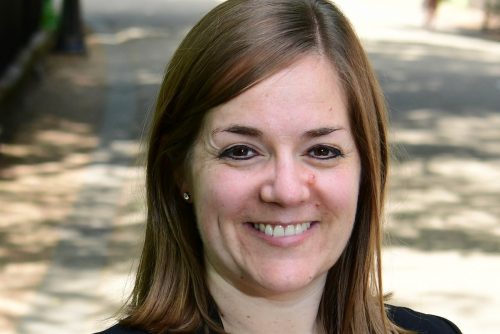West Midlands small businesses show resilience and an appetite for growth

Dr Sophie Dale-Black, Director, Midlands – UK Network at the British Business Bank
Small businesses have faced significant challenges over the past two years due to the disruption caused by Covid-19. However, as we tentatively enter a post-pandemic business landscape, we are seeing encouraging signs throughout the West Midlands.
As evidenced in the British Business Bank’s recently published eighth annual Small Business Finance Market Report, not only is there an impressive resilience among the region’s smaller businesses, but also a strong appetite for business growth.
Investment opportunities
The Small Business Finance Market Report revealed that equity investment in West Midlands smaller businesses reached £277 million by the end of 2021’s third quarter, across 46 deals. While this marked an 18% increase in the number of equity deals completed in the same period in 2020, the region experienced a 25% drop in overall investment value however one quarter of data is still to go.
Demand for finance in the West Midlands remains robust, with 32% of smaller businesses surveyed stating they would be happy to use finance to grow.
According to our recent survey of West Midlands business intermediaries, which includes accountants, lawyers and business support specialists, external finance for working capital, investment and growth are the key areas that are firmly in the minds of small businesses looking ahead across 2022.
The survey also showed that there was a similar likelihood of businesses in the region (85%) seeking finance for investment and growth than across the UK (81%), and a lower likelihood they would be looking for financial support to assist them in managing debt (19% West Midlands, 36% UK) – demonstrating that hunger for business growth and expansion.
Advancing the green agenda
Driven by the expectations of today’s increasingly climate-conscious customers and the need to remain competitive, the Small Business Finance Market Report found that financing the transition to net-zero was the fourth most common area in which smaller businesses would be looking for finance.
The intermediary survey highlighted that West Midlands businesses are keen on improving their environmental credentials for competitor and customer reasons, rather than it being about reducing costs.
In turn, cost was found to be the most common barrier to smaller businesses improving environmental credentials in 2021, with the British Business Bank’s Smaller businesses and the transition to Net Zero report finding that it was a concern for 35% of smaller businesses.
Breaking down regional barriers
Over the past few years, the West Midlands’ local venture capital sector has grown with 21 unique investors involved in venture capital now present in the region. Proximity between investors and small businesses is a key factor within equity investment.
External finance will continue to play a critical role in supporting more businesses in the region move from recovery to growth, therefore continued regional imbalances in flows of finance have real economic implications. External finance remains concentrated in London, where firms attracted 70% of 2021 Q1-Q3 equity investment value.
So there is work to be done, breaking down regional barriers to access to finance remains key
to levelling up economic opportunity, which we remain committed to addressing.







